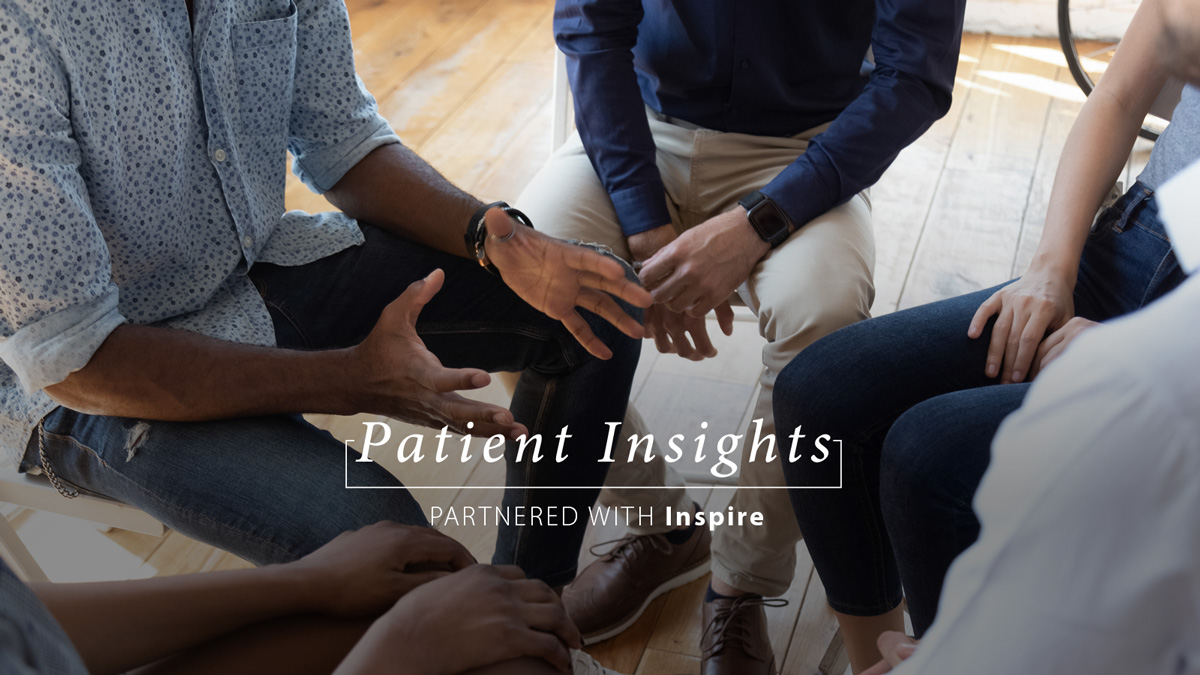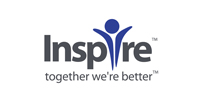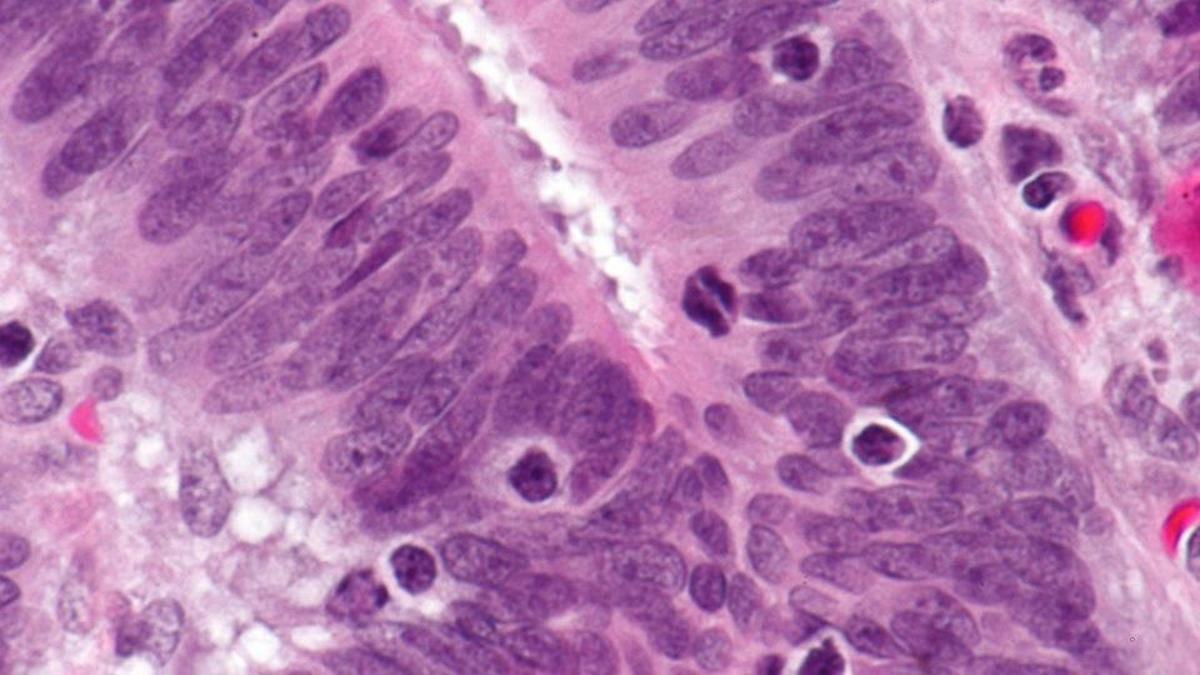Patient Insights: Colorectal Cancer

Event planner and colorectal cancer survivor Kim Hall-Jackson tells us how she hopes to improve rates of diagnosis, help people through their journeys and make the voices in the patient community more diverse.
What led you to get involved in patient advocacy?
After I was diagnosed with colorectal cancer and started going to support centers, I realised that there were very few people there who were similar to me – a 45-year-old African American woman, and a mother of six. I think, culturally, you need to connect with people that look like you, that feel like you, that understand what you're going through, but when I called the American Cancer Association and asked them if they had any people of color, any females, or any mothers to talk to, they said they had nothing.
Because of this I started working as somebody for newly-diagnosed people to call, particularly people in a similar situation to me – for example, it might be a young lady who’s African American and a mother of two. I send the person a text or email and say, "Hey, I'm Kim. Here's a link to my story. Feel free to give me a call, and nothing is off-limits."
People in this community talk a lot about things like poop and sex and diet. It can be embarrassing talking to somebody face to face, and a lot of people are more comfortable over the phone or email.
I share information and tell them about my journey and what I experienced when I had chemo – for example, the kinds of food I love but can’t eat much any more (like salads or Cheerios) or how scar tissue from radiation might make sex feel different, or how to communicate with your family and how to deal with your children.
“You often have to meet people where they are culturally A lot of healthcare organisations don't do that because they don't understand the culture or haven’t even tried to understand it”
That's how I started the journey and it’s remained probably my favourite part of what I do. But I'm committed to changing the face of the disease in all kinds of ways – from poster sessions to speaking at events. I'm open to it all because everybody's journey is different.
What other challenges in colorectal cancer would you like to tackle?
Another component is that African Americans have higher rates of colon and colorectal cancer. This is not necessarily because we get the disease more frequently, but because when we are diagnosed it's at a later stage. If you diagnose this disease early, it's one of the most treatable forms of cancer, and has one of the higher survival rates.
There are a few reasons for this. Particularly among African American men – and Muslim and Hispanic men too – the test isn’t popular at all. People don't want to do it. There are many rumors and myths about it, e.g. that if you take the test you'll have erectile dysfunction, you'll be gay, etc.
There is also a history of poor testing and guinea pig testing that is still challenging in the African American community – things like people being tested in prison and the Henrietta Lacks story are well known.
The other component is that when I was younger, nobody talked about cancer, particularly in front of their children, and therefore many people don't know that the disease is in their family history.
But at the end of the day, these tests could save your life, so we’re working towards making it more common and accepted.
How can that be achieved?
You often have to meet people where they are culturally to get over that barrier. A lot of healthcare organisations don't do that – often because they don't understand the culture or haven’t even tried to understand it.
As an example, in 2015 I put on an event called The Black and Blues Brunch to explain what colon and colorectal cancer is and encourage people to take the test.
I held the event at a soul food restaurant, as I didn’t want it to be anywhere medical looking. I invited people who were 45 and older and had been told by their doctor that they should get a colonoscopy but for some reason did not. People have all kinds of excuses – they had no one to take them, they were too busy, they’re afraid of the prep, etc.
We had music, food, entertainment. We had various doctors speak about what cancer is and what a colonoscopy is. There was an opportunity to talk to survivors one-on-one about their experiences.
The keynote speaker was Kitt Shapiro, the daughter of African American actress Eartha Kitt. Her mom passed away from colon cancer. People my age and older really admire her mom as a sex symbol. Having her daughter talk about what she went through went over really well.
The gastroenterologist that came to the event did the best job of explaining what the procedure was. I remember her holding up an ink pen, and saying that the scope that they use is smaller than the pen. She said, "Come on, some of you have stuff coming out three times this size." Everybody laughed – it was a nervous laugh, but she was right. It put people at ease and made them comfortable talking about it a little more.
At the end of the event, we met our goal to have everybody make a commitment to get screened.
Having organisations attend or help promote these types of events, where people can be in a comfortable space and not in an office or a white coat environment, can make a big difference.
Do you see similar issues with culture and diversity in the pharma industry?
People often talk about the lack of diversity in clinical trials. We want to think a drug works well for everybody, but sometimes it doesn't depending on your age, your race, etc. We know that everybody is not a white male between 50 and 60, so the industry tests quite broadly, but perhaps not broadly enough in a cultural sense. I don't think we're all the way there yet.
Is there anything else you wish you’d known at the time of your diagnosis, or anything you’d say to anyone newly diagnosed?
I didn't know anything about colon or colorectal cancer, so when I got diagnosed I had to become an expert in 48 hours. You go crazy trying to figure it all out. I wish that I had stayed off the internet!
I also wish I was not so hard on myself. I felt responsible. I felt like I did something wrong. I tell people now, "Be kind to yourself. Don’t be brutal.” Because you're about to go on a very long journey, and you can't beat yourself up for months. A positive attitude, and the support of family and friends, is what's going to get you through.
 Patient Insights is a monthly series that appears in partnership with Inspire, a company with an online support community of more than 1.5 million patients and caregivers worldwide.
Patient Insights is a monthly series that appears in partnership with Inspire, a company with an online support community of more than 1.5 million patients and caregivers worldwide.












